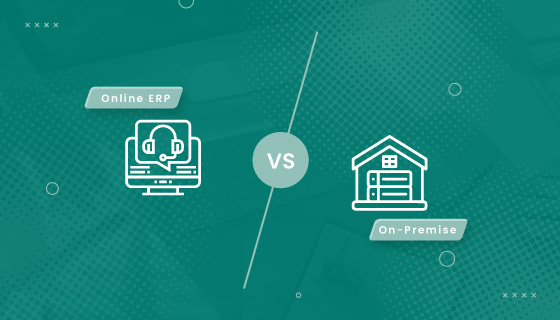14 Nov 2024
With more than 15 years of ISO 9001 QMS certification and ISO 27001 ISMS certification since 2022, Integrated Digital Systems (IDS) is committed to implementing international standards in quality management and information security. Our focus on quality drives us to deliver secure, high-quality solutions that consistently meet or exceed customer expectations. Applying international quality standards in an IT company is crucial for ensuring consistent quality, efficiency, and customer satisfaction. Implementing a Quality Management System (QMS) builds trust between the customers and the company as it effectively helps to reduce errors, optimize production and delivery time, ensure quality products, and promote transparency and credibility.
International quality standards like ISO 9001 offer a structured framework that enables organizations to establish organized processes, analyze and mitigate risks, reduce errors, and continuously improve their services. They also support a systematic approach to project management, with clearly defined roles, procedures, and key performance indicators (KPIs).
By implementing a structured framework and defining clear interrelated processes, we have established a culture of continuous improvement and customer-centric business. Quality is embedded in every aspect of our daily work and is evident in our professional project management practices. This enables us to meet our goals of having a good share in the market, optimizing processes, and foreseeing client needs in the rapidly evolving digital world.
With strong commitment and support from top management, we have successfully transitioned from compliance-driven practices to performance-oriented initiatives. The transition helped us to become more productive with a focus on customer satisfaction. The shift has been achieved by setting clear process objectives, building a culture of continuous improvement, empowering our teams and involving them in decision-making, engaging customers and taking their feedback, adopting agile methodologies for flexibility and maximum customer involvement, and regularly monitoring our work to identify and fix anomalies and non-conformities.
Our process objectives are met by defining clear, measurable metrics. Continuous improvement is enforced through employee training, knowledge sharing, lessons learned, embracing change, goal-setting, ongoing monitoring, and leadership support. We encourage collaboration and interaction among teams through regular meetings and open communication channels.
Building a quality culture within a company requires coordination between the various resources. At IDS, we achieve this through the following:
- Leadership Commitment to High Quality Standards: Our top management emphasizes the importance of quality, establishes policies, sets objectives, and holds employees accountable for achieving them.
- Dedicated Quality Management Team: Our quality personnel implement an international Quality Management System (QMS), seek best practices, document procedures, identify necessary changes, collect customer feedback, monitor and control processes, and perform internal audits.
- Employee Training and Development Programs: Our HR officers support employee development by collaborating with team leaders to identify training needs and communicating with training agencies to provide access to relevant training courses and workshops.
- Knowledge Sharing: We promote sharing experiences and lessons learned to reduce problem-solving time and improve efficiency. IDS has a built-in “IDS Forum” for sharing experiences across teams.
- Open Communication Channels: Cross-team communication is encouraged to raise awareness of company policies and objectives, share knowledge, and improve quality standards.
- Performance Appraisal and Rewards: We promote a culture of improvement by evaluating employee performance and recognizing high-quality work.
- Customer Feedback Systems: We have clear procedures in place to collect, gather, analyze, and act on customer feedback, ensuring our services meet customer expectations.
- Using Monitoring Tools and Data Analysis: Quality management relies on data collection and analysis. IDS uses in-house ERP applications and project management tools to monitor operations, track and trace projects and other business activities, calculate KPIs, and identify areas for improvement, ensuring top-quality production and timely delivery.
- Using Agile Methodologies: Implementing Agile provides a flexible and responsive environment that focuses on continuous improvement through rapid feedback and continuous customer involvement.
With the above, we integrate quality practices into our work environment, empowering employees at all levels to make decisions that enhance quality, promote innovation, and meet customer needs.
Moreover, promoting a learning culture and knowledge sharing is very important for retaining a good quality management system (QMS) and for business continuity. We foster this by practicing the following:
- Continuous Learning and Development: Internal and external training is encouraged and is continuously practiced. A knowledge-sharing platform (IDS forum) is used to share information, and employees who post on it are rewarded.
- Induction Training: Seniors and experienced employees train new team members to develop their skills and transfer knowledge. Here, our QMS policies and processes are introduced, and new employees acknowledge understanding them and abiding by them. New employees are encouraged to learn and share their ideas constructively.
- Cross-Functional Teams Coordination and Communication: Employees are encouraged to interact and share their ideas and solutions.
- Host Events to Highlight Achievements and Business Practices: Several times per year, we host big events and gather the company over lunch or dinner where managers speak about their goals and their achievements.
- Post-Project Reviews and Evaluation: After completing a project, the project manager evaluates with his team the project progress to collect lessons learned and benefit future work.
Implementing quality management practices helps an organization to achieve high efficiency, productivity, and customer satisfaction. The main requirements for the implementation of a successful QMS are leadership support, risk identification and mitigation, clear and achievable goals, identification of roles and responsibilities, development of resources through training and education, employee empowerment and engagement, customer feedback, continuous monitoring and control, and continuous improvement.
Effectively, implementing recognizable quality management standards like ISO 9001 contributes to our business continuity and helps us deliver reliable, secure, and high-quality solutions that meet or exceed client expectations.





